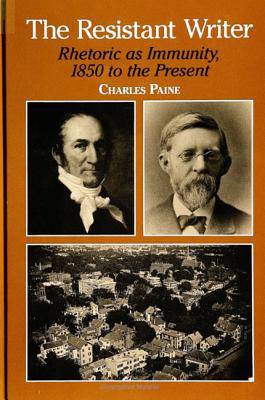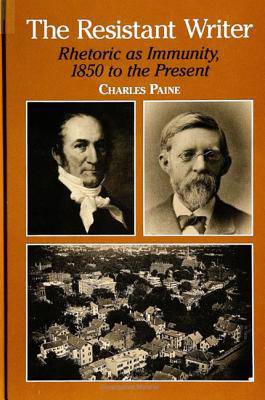
Vous voulez être sûr que vos cadeaux seront sous le sapin de Noël à temps? Nos magasins vous accueillent à bras ouverts. La plupart de nos magasins sont ouverts également les dimanches, vous pouvez vérifier les heures d'ouvertures sur notre site.
- Retrait gratuit dans votre magasin Club
- 7.000.000 titres dans notre catalogue
- Payer en toute sécurité
- Toujours un magasin près de chez vous
Vous voulez être sûr que vos cadeaux seront sous le sapin de Noël à temps? Nos magasins vous accueillent à bras ouverts. La plupart de nos magasins sont ouverts également les dimanches, vous pouvez vérifier les heures d'ouvertures sur notre site.
- Retrait gratuit dans votre magasin Club
- 7.000.0000 titres dans notre catalogue
- Payer en toute sécurité
- Toujours un magasin près de chez vous
145,45 €
+ 290 points
Format
Description
The Resistant Writer integrates two lively sub-fields in rhetoric and composition: nineteenth-century composition history and contemporary issues about teaching cultural studies in composition. Examining the broad cultural anxieties that nineteenth-century intellectuals faced reveals that training in composition was envisioned as more than the means for producing competent writers. The training also reacted to and tried to ameliorate the nineteenth-century "crisis in public discourse," this one brought about not by television, commodity capitalism, or the World Wide Web, but by the then-dominant medium of public discussion, the newspaper. Paine carefully reveals that today's writing teachers are not the first to desire that the composition classroom have social import beyond the academy. These thoughtful new insights from composition's origins form an intriguing critique of contemporary "cultural studies and composition" theories of student transformation.
Spécifications
Parties prenantes
- Auteur(s) :
- Editeur:
Contenu
- Nombre de pages :
- 261
- Langue:
- Anglais
- Collection :
Caractéristiques
- EAN:
- 9780791440490
- Date de parution :
- 11-02-99
- Format:
- Livre relié
- Format numérique:
- Genaaid
- Poids :
- 535 g







